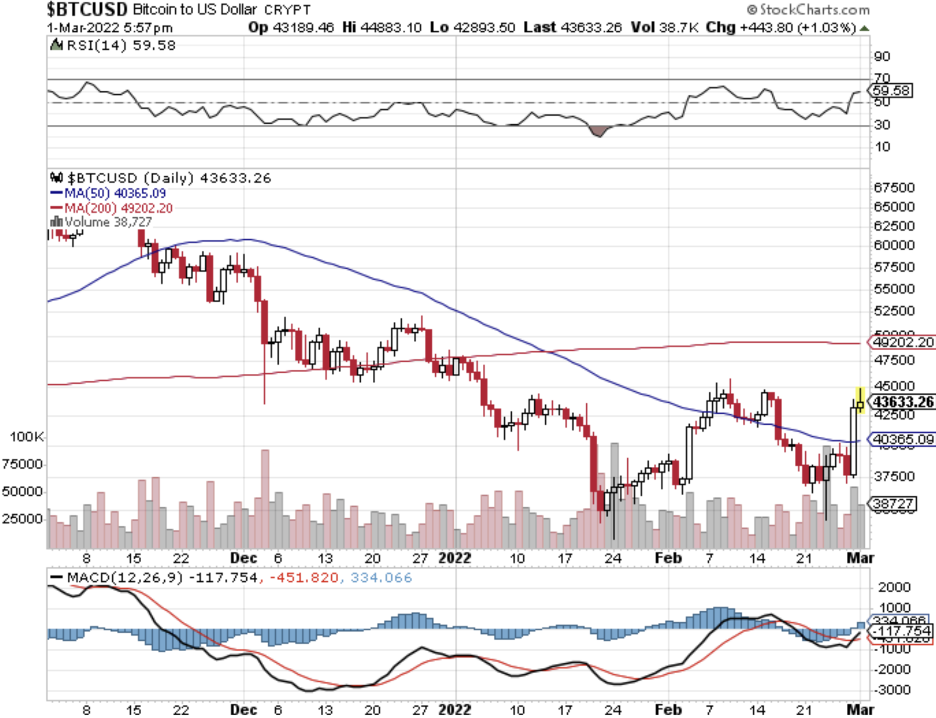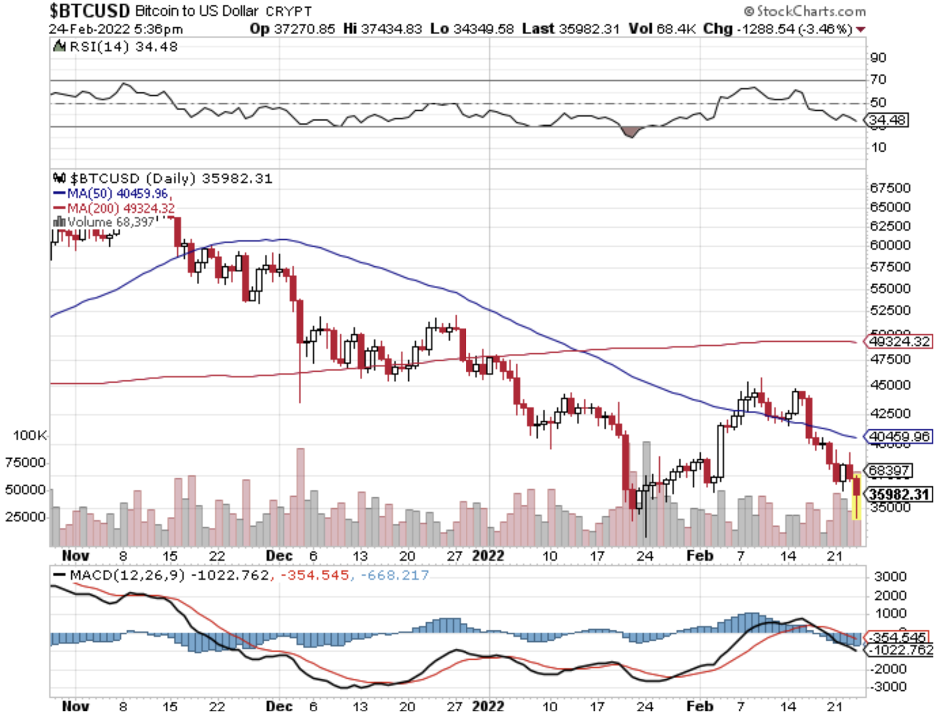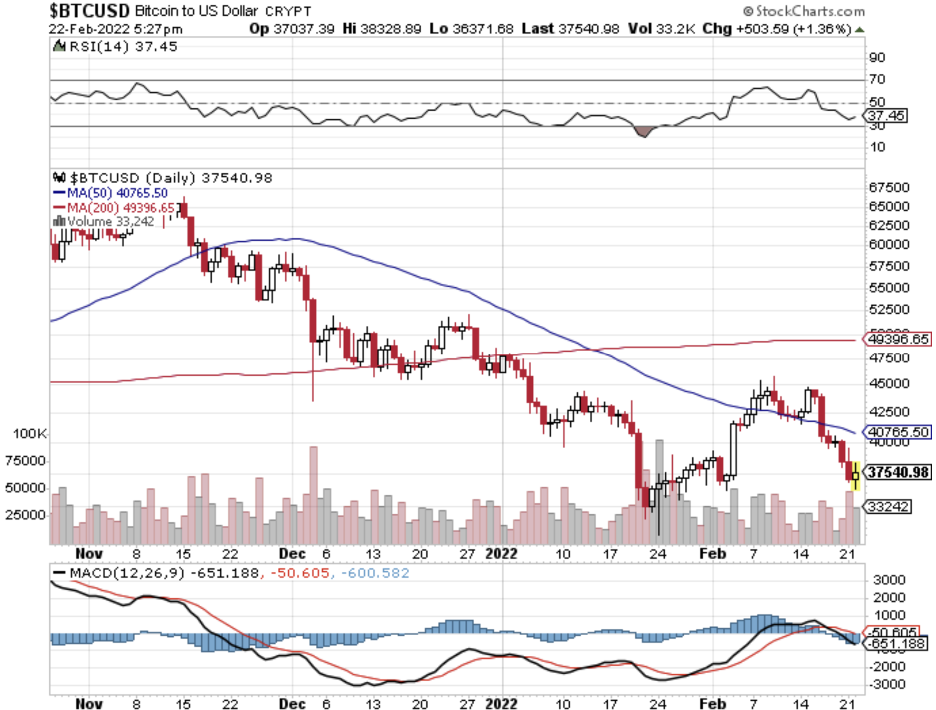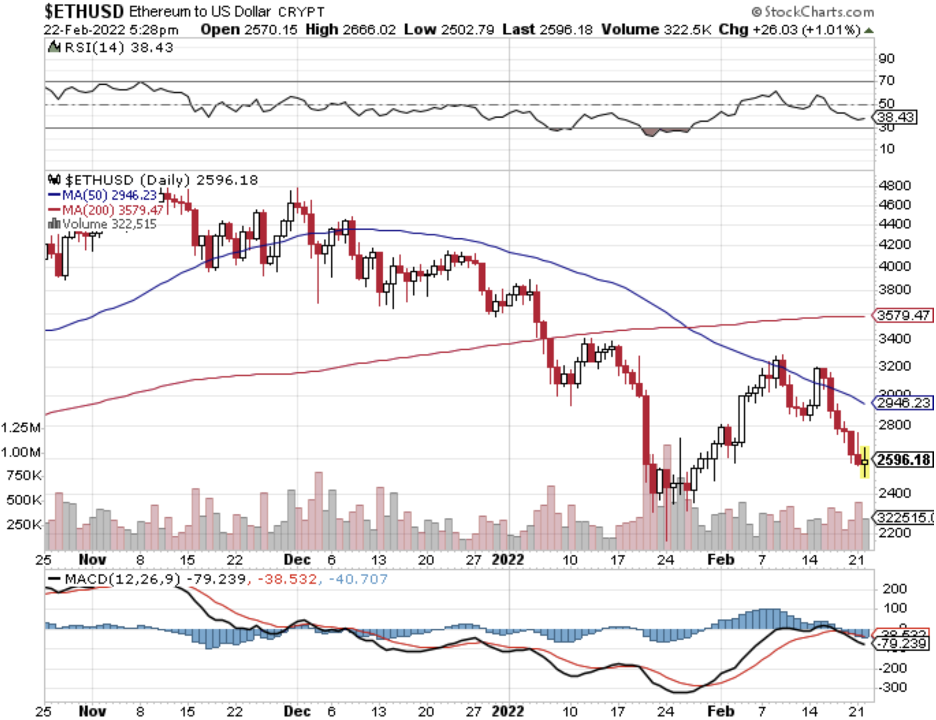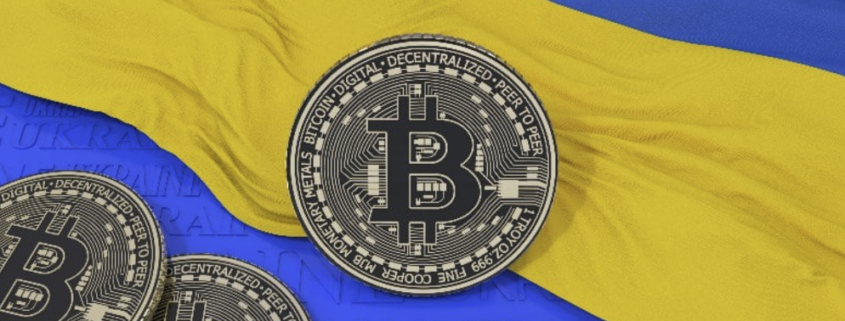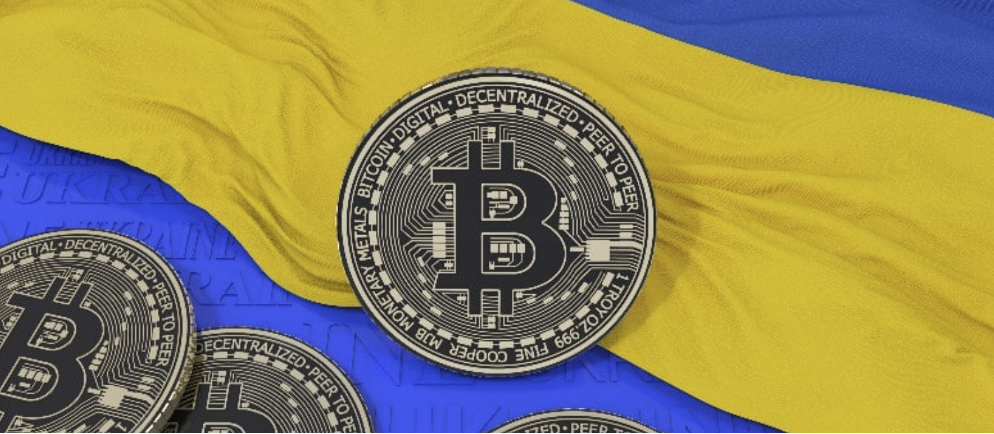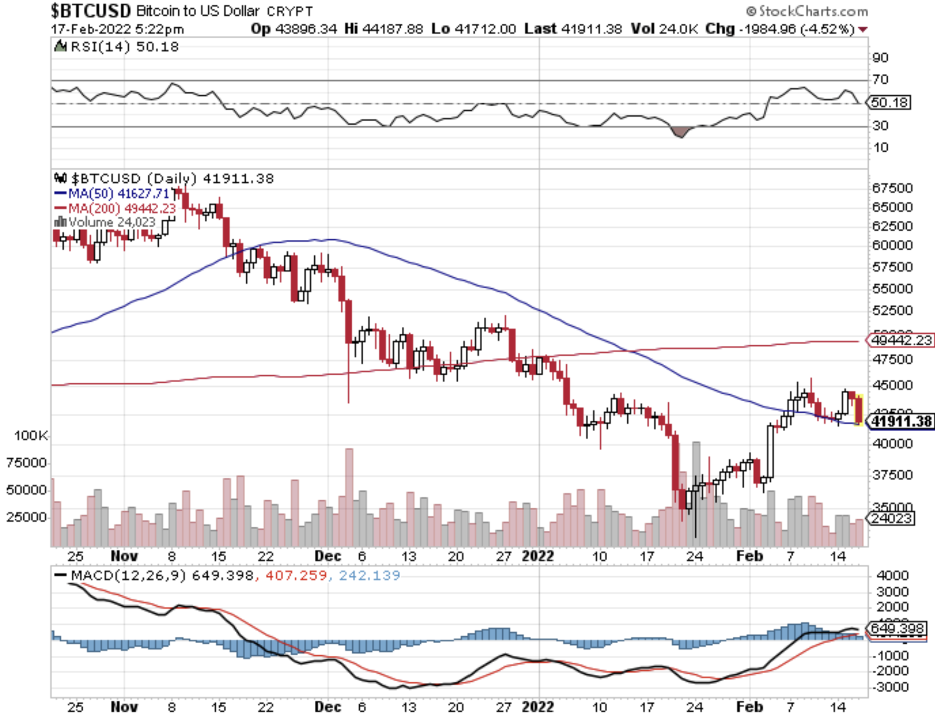Crypto has been going wild the last few days as There Is No Alternative (TINA) takes effect.
Russia’s financial system has been crippled and shut off to the outside world.
Bitcoin has shot up to the number one means of storing wealth.
Russians are buying bitcoin in droves as bank runs and systemic risk inundate the financial system.
The Russian Ruble has been crushed the past few days and Russian citizens have been trying to get rid of any rubles they have.
In this scenario, Bitcoin absolutely makes perfect sense.
The Russian Ruble now stands at 116 Rubles for $1 and the US dollar and Swiss Franc have benefited from this flight to safety.
Over the weekend, the U.S. and its allies stepped up draconian measures against Russia, intending to stop its banks from accessing SWIFT, the messaging network underpinning global financial transactions.
The European Union banned all transactions with the Russian central bank in a bid to prevent it from selling overseas assets to support its banks.
Without the source of funds, Russia is unable to properly finance its military for the long haul and it could mean that this war could drag out to a long-term event.
That event is extremely positive for the US dollar and for assets that are shut out from the traditional global financial system.
Debate has been raging over whether bitcoin, which is not owned or issued by a single authority like a central bank, could be used by Russia to evade sanctions.
There is a high probability that the Russian government will also turn to Bitcoin to maneuver around the sanctions.
However, it’s debatable whether the crypto networks can handle that type of volume.
The liquidity simply isn’t sufficient.
The new measures will also target the National Wealth Fund of the Russian Federation and the Ministry of Finance of the Russian Federation.
A secret Chinese research paper circulating around comes to a conclusion that this war could fracture the global financial system making the US dollar less attractive in the long haul and concluding the US economy will be a big economic loser with the expenses adding up.
The Bank of Russia, the nation’s central bank, stepped in to stanch the ruble’s swoon by more than doubling the country’s benchmark interest rate to 20% from 9.5%.
The hike in rates is designed to tempt savers to keep cash in Russian banks since the West and its allies have moved to isolate Moscow’s biggest lenders from international markets.
Even the Russian stock market has been closed because of these events.
As the Russian military drives a convoy to the edge of Kiev, this is really looking ugly, and sadly, on a human level, it is tragic, but this event is bullish for Bitcoin.
The inflationary effects were thought of being a tailwind for Bitcoin, but it appears as if the world has had to dive deep into a massive kinetic war to kindle that Bitcoin pixie dust once again.
I am bullish Bitcoin if the fighting continues.

